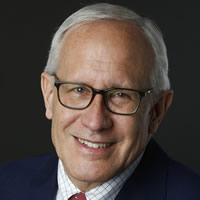Former Executive Committee Member
Deputy General Counsel, The New York Times
As a First Amendment lawyer I am pretty much required to remind people that the New York City Bar Association was the setting for one of the landmark battles for freedom of expression in America. In 1933, federal Judge John J. Woolsey, apparently less than pleased with the facilities found downtown at the Southern District courthouse, began hearing his cases at the City Bar in midtown.
It was there on a Saturday morning in November 1933 that he heard The United States of America v. One Book Called “Ulysses” – a case that asked Woolsey to decide whether James Joyce’s landmark novel of life in Dublin on a single day in 1904 was obscene.
Kevin Birmingham, in his book “The Most Dangerous Book: The Battle for James Joyce’s Ulysses,” offers a captivating account of the arguments that took place that morning before a packed house at the City Bar. Woolsey, if nothing else, knew how to cut to the chase, channeling a question that future English majors would ask forever. “Did you really read this entire book?” he asked defense counsel at one point. “It’s tough going, isn’t it?”
The City Bar as a venue offered one particular advantage to the judge. It put him in striking distance of the Century Club on 43rd Street, to which he repaired after the argument for his regular Saturday lunch (and, according to Birmingham, for consultation with Centurions on the merits of Joyce’s work). A few weeks later, Woolsey issued an eloquent decision, permitting “Ulysses” to be sold in the United States.
The Second Circuit would later affirm but it is Woolsey’s opinion, a stalwart defense of literature and free expression that is remembered. The decision (found at 5 F. Supp. 182) was republished in later editions of the book, and Professor Irvin Younger once declared it the most widely distributed judicial opinion in history. The fight against censorship would go on for decades, but Woolsey’s decision drew a line. Yes, he wrote, “Ulysses” was at times “disgusting,” but “when such a great artist in words, as Joyce undoubtedly is, seeks to draw a true picture of the lower middle class in a European city, ought it to be impossible for the American public legally to see that picture?”

